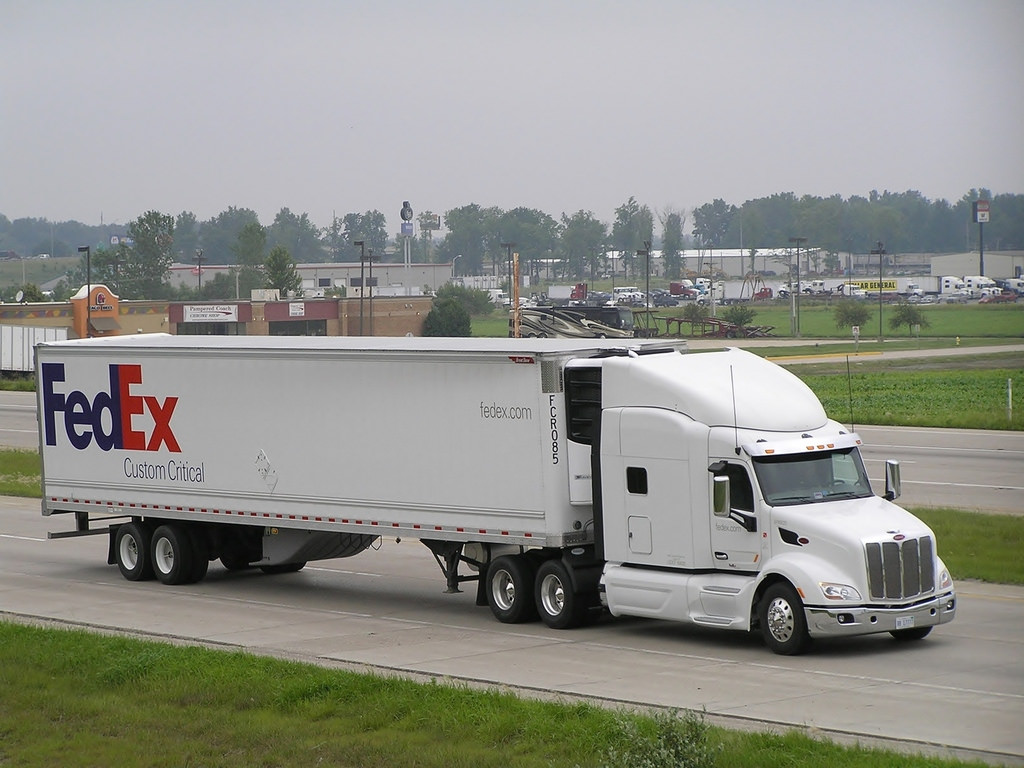If you’ve been considering a job as a commercial truck driver, great! It’s a smart career choice that will allow you to be part of one of the biggest paid industries in America. Of course you need to decide for yourself if truck driving is right for you, but if and when you decide it is, you’ll be happy you made the choice. Perhaps one of the most important questions potential drivers want to know is: how much do truck drivers make? This is certainly an important question, and in this article, we’ll try and give you better insight as to how it works and what you can expect. Do be aware, though, that the money will vary a little from state to state.

Pay Per Mile
To understand “how much do truck drivers make”, you need to first understand the various forms of pay. The most common way that commercial truck drivers will get paid is by the mile. The rate will vary depending on the experience of the driver, the type of load they carry, the region they drive in, and the company they work for. Rookie drivers will receive less pay compared to experienced drivers. Of course, that’s to be expected in most any job you can think of. The average pay is $0.27 to $0.40 per mile. As you gain more experience or drive a more difficult load, these per mile rates will increase.
As a commercial truck driver, you’ll likely be driving anywhere from 2,000 to 3,000 miles a week. Knowing your approximate mileage will help you get a better understanding of the type of pay you’ll be receiving.
If you know the roads well and are able to avoid hazards and traffic, you’ll increase the chance of meeting any mileage goals as well as time deadlines. Planning ahead of time and being proactive will help you immensely.
There are also three common types of pay per mile that we’ll discuss including: practical mileage, household good mileage, and hub mileage.
Practical Mileage
This is the distance calculated from the origin point to the destination. Consider if you were heading on a trip somewhere and typed the destination into your phone/GPS. The miles that would pop up would be considered the practical mileage.
Household Goods Mileage
Household goods mileage is what’s calculated as the shortest distance between two zip codes. Generally this is calculated between two post offices.
Hub Mileage
Hub mileage is the actual amount of miles that the driver has driven. Whatever miles his or her odometer reads is what is calculated in their pay. Oftentimes this can be different from the practical mileage due to the driver taking necessary detours.

Salary Positions
Finding a salary position can be a great option if you’re worried about being paid per mile. When asking, “How much do truck drivers make?”, a salary position is the second-most common form of compensation. Working for a big company can allow you to constantly have jobs waiting for you, which is always to your benefit—although there are some drawbacks for working as a fleet driver. Oftentimes you won’t have the choice of when you want to work and when you prefer your home time. For example, they may schedule you to work during weekends, and that may not be your preference.
According to the American Trucking Association, a private fleet driver’s median income has risen to $86,000, an increase of 18% since 2013.
Additional Compensation
Many companies are starting to adapt to the growing concern of keeping their drivers. Companies are finding it more difficult to keep younger drivers with the growing concern of work-life balance, paid leave, and flexible scheduling. As a result, companies are starting to add various types of compensation to entice young drivers to stay on, including:
Sign-On Bonus
Many companies are beginning to offer sign-on bonuses for new drivers as a form of additional compensation. For example, Dart was recently offering a $10,000 sign-on bonus for new employees. This is a great way for companies to adapt to the new economic and work-life concerns.
Per Diem Pay
This isn’t necessarily a new trend, nor is it exclusive to the trucking industry, but another form of compensation companies are offering is per diem pay. This is a daily allowance for the driver to use to cover meals and other expenses that can occur. This is a daily, non-taxable allowance provided by the company in addition to the regular compensation.
Percentage Of Load
This type of compensation is mostly for owner-operator drivers. Drivers can negotiate compensation in the form of a percentage of the load that they are carrying. This can be negotiated on the gross or net value of the load, whichever the driver and company can agree upon. Of course, every company is different and some may not offer this type of compensation. Additionally, driver experience and record can be used in negotiating a percentage.
Accessorial Pay
Depending on the company you’re working for, or if you’re an owner-operator, there are varying duties that are sometimes necessary to perform. Many companies will compensate you for this additional workload which extends beyond simply picking up, maintaining, and delivering a load.
A few examples of these duties are:
- Shrink-wrapping pallets
- Paying for tolls
- Operating a forklift or pallet jack
Stop Pay
Oftentimes, loads may require multiple stops before reaching their end destination. Some companies may offer stop pay as a way to compensate the driver for the additional time that was necessary to complete the delivery.
Fuel-Efficiency Bonus
Proving to your company that you’re an efficient driver can potentially earn you bonuses over the course of a year. Saving your carrier fuel over a period of time shows them you know what you’re doing and that you’re a cost-conscious driver. This is appreciated by some companies in the form of a bonus.
Conclusion: How Much Do Truck Drivers Make?
As with any line of business, how much you make as a truck driver is going to depend on a variety of factors. Will you be working as an owner-operator (one of the most popular forms of truck driving), or will you be working as a fleet driver for a company? Your first year of driving will mostly be a learning experience, and you will be earning less—just as in most careers.
It’s important to do your research when applying to various companies. Make sure you’re asking the right questions for the aspects of the job that are important to you. You don’t want to start a job only to realize two months in that it just isn’t for you.
So when you ask yourself, “How much do truck drivers make?”, realize that there is a specific baseline which we mentioned here, but that your experience, who you work for, how good of a driver you are, and much more will factor into your yearly earning. If you think truck driving is for you, contact us to find out how we can help you get into this lucrative career.

